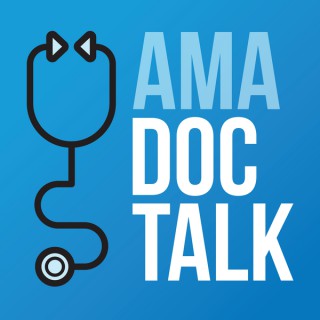Podcast appearances and mentions of Barron H Lerner
- 3PODCASTS
- 4EPISODES
- 33mAVG DURATION
- ?INFREQUENT EPISODES
- May 14, 2020LATEST
POPULARITY
Latest podcast episodes about Barron H Lerner
Medical Paternalism and a Patient Experience With COVID-19
Barron H. Lerner, MD, PhD, a professor of medicine, bioethicist, and 5-time book author at New York University, shares his personal journey of contracting and being treated for COVID-19, thoughts on the usefulness of antibody tests and convalescent-based plasma treatment, ethical considerations of treating patients with experimental therapy, and the balance between patient autonomy and physician paternalism.
Lindsey Fitzharris tells the story of Ignaz Semmelweiss, the hand washer. In a world that had no understanding of germs, he tried to apply science to halt the spread of infection. Ignaz Semmelweis observed that many young medical students at his hospital in Vienna went directly from an autopsy, still covered in contaminated dead flesh, to attend pregnant women. Could this be the reason for such high maternal mortality rates from conditions like puerperal fever? Believing that the disease was caused by “infective material” from a dead body, Semmelweiss set up a basin filled with chlorinated lime solution in his hospital and began saving women’s lives with three simple words: ‘wash your hands’. He was demonised by his colleagues for his efforts, but today, he is known as the “Saviour of Mothers.” Lindsey Fitzharris discusses some of the common myths surrounding the story of Semmelweiss with Dr Barron H. Lerner of New York University Langone School of Medicine. And she talks to Professor Val Curtis, Director of the Environmental Health Group at the London School of Hygiene and Tropical Medicine, who has studied the amount of hand washing by medical staff in hospitals today. Picture: Victorian boy washing his hands in a stream, Credit: whitemay
Lindsey Fitzharris tells the story of Ignaz Semmelweiss, the hand washer. In a world that had no understanding of germs, he tried to apply science to halt the spread of infection. Ignaz Semmelweis observed that many young medical students at his hospital in Vienna went directly from an autopsy, still covered in contaminated dead flesh, to attend pregnant women. Could this be the reason for such high maternal mortality rates from conditions like puerperal fever? Believing that the disease was caused by “infective material” from a dead body, Semmelweiss set up a basin filled with chlorinated lime solution in his hospital and began saving women’s lives with three simple words: ‘wash your hands’. He was demonised by his colleagues for his efforts, but today, he is known as the “Saviour of Mothers.” Lindsey Fitzharris discusses some of the common myths surrounding the story of Semmelweiss with Dr Barron H. Lerner of New York University Langone School of Medicine. And she talks to Professor Val Curtis, Director of the Environmental Health Group at the London School of Hygiene and Tropical Medicine, who has studied the amount of hand washing by medical staff in hospitals today. Picture: Victorian boy washing his hands in a stream, Credit: whitemay
From skipping medication and missing appointments to not practicing self-care, patients don’t always listen to medical advice. Why does this happen? And, more importantly, how can we help them hear and follow the advice and treatments we provide? We’ll gain insights from Barron H. Lerner, MD, an ethicist and professor of medicine and population health at New York University Langone Medical Center, and the author of The Good Doctor: A Father, A Son and the Evolution of Medical Ethics.






